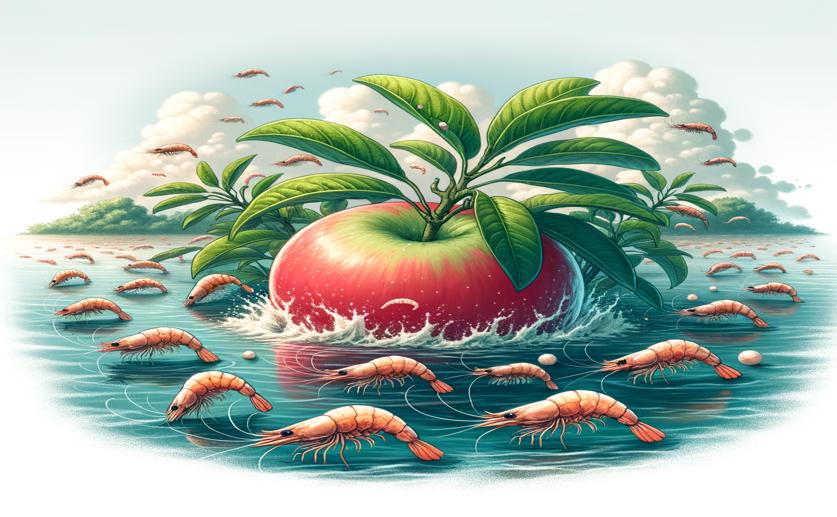
Effectiveness of Pond Apple Extract on Shrimp Disease Prevention
Jenn Hoskins
25th May, 2024

Image Source: Natural Science News, 2024
Key Findings
- The study by Tra Vinh University explored using compounds from pond apple (Annona glabra) to prevent and treat AHPND in shrimp
- Methanol extracts of A. glabra were highly effective in killing the bacteria causing AHPND
- Shrimp fed with methanol extract diets showed no adverse effects and had increased growth and survival rates
- The methanol extract enhanced the shrimp's immune system, increasing haemocyte counts and reducing bacterial load in the hepatopancreas
MedicineAnimal ScienceMarine Biology
References
Main Study
1) Efficacy of Annona glabra extract against acute hepatopancreatic necrosis disease in white-leg shrimp (Penaeus vannamei).
Published 22nd May, 2024
https://doi.org/10.1016/j.jip.2024.108142
Related Studies
2) Flavonoids: new roles for old molecules.
3) Heavy use of prophylactic antibiotics in aquaculture: a growing problem for human and animal health and for the environment.
Journal: Environmental microbiology, Issue: Vol 8, Issue 7, Jul 2006
4) Developing New Antimicrobial Therapies: Are Synergistic Combinations of Plant Extracts/Compounds with Conventional Antibiotics the Solution?
5) Interactions between gut microbiota and polyphenols: A mechanistic and metabolomic review.



 22nd May, 2024 | Jenn Hoskins
22nd May, 2024 | Jenn Hoskins